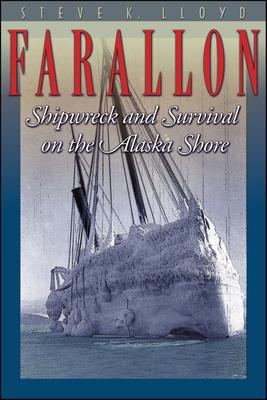On a snowy morning in January 1910, the Alaska Steamship Company liner Farallon ran aground on Black Reef in lower Cook Inlet, Alaska. Thirty-eight men escaped in the ship's lifeboats and reached the barren, ice-strewn shore of Iliamna Bay where they huddled under make-shift tents constructed from Farallon's sails. The ship had no wireless communication, and the men were stranded on a desolate, wilderness coastline in the full grip of winter with meager provisions, inadequate clothing, and little hope of rescue.
Six of the men took to the open sea in a 12-foot lifeboat in a daring attempt to reach far-distant Kodiak Island and arrange for a rescue. They set out into vast Shelikof Strait--one of the most dangerous bodies of water in the North Pacific. These brave mariners, given up for lost, were finally rescued more than two months later.
The Farallon incident is particularly unique in that a compelling photographic record of the wreck and the stranded party's travails were made at the time. John E. Thwaites, an amateur photographer and the ship's mail clerk, took more than 50 high-quality images of the stranded steamship shrouded in ice, the frostbitten men with burlap wrapped around their feet, and the barren, treeless lagoon. These stark pictures vividly illustrate the desperation felt by the stranded passengers and crew during their ordeal when temperatures dropped as low as -40 degrees Fahrenheit. After 29 days, they were rescued by the steamship Victoria.
Author Steve K. Lloyd personally investigated the wild, storm-swept beach where wreckage from the Farallon remains visible today. Lloyd brings to life a riveting tale of hardy seafaring men who survived hunger and despair against incredible odds.
